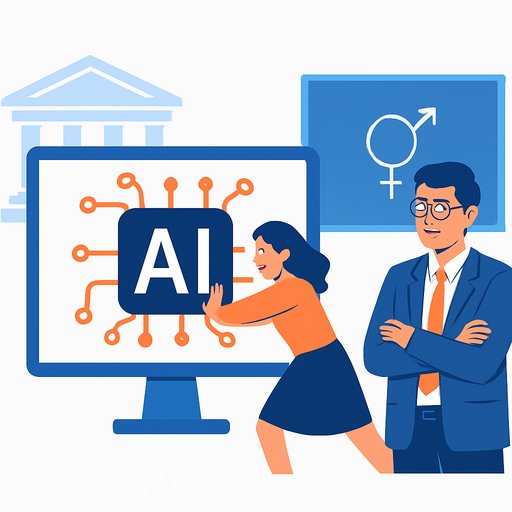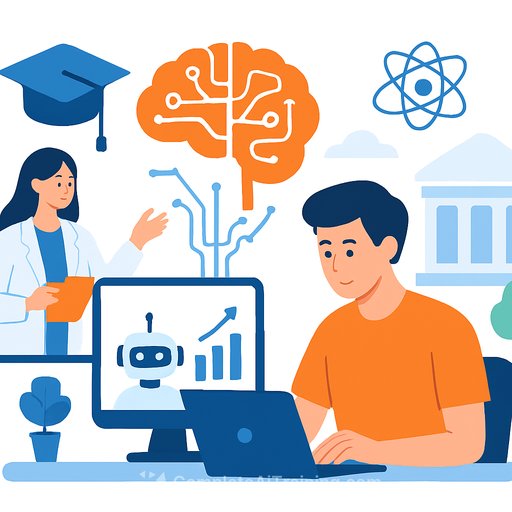AI adoption rises in Indian B-schools, but only 7% of faculty are expert users
Indian management institutes are rolling AI into teaching, research and curriculum work. Yet a new survey of 235 faculty from IIMs, IITs, ISB, XLRI, SPJIMR, MDI and NMIMS shows a skills gap: 55% are intermediate users and only 7% consider themselves experts.
Just 51% of faculty expect a positive impact on student learning. Another 21% feel it's too early to call, 18% report an unfavourable impact, and nearly 10% see no material change. Expectations are rising, though-more than half anticipate a bigger role for AI across teaching, curriculum and research over the next 12 months.
Where AI is being used today
- Research: Highest adoption for literature reviews, idea generation and drafting.
- Teaching: Lesson planning, examples and classroom prompts are common.
- Curriculum development: Growing steadily as faculty test new modules and cases.
- Administration and assessment: Still early stage with clear scope for structured support.
Faculty proficiency and sentiment
- Proficiency: 55% intermediate, 7% expert users.
- Perceived impact on learning: 51% favourable; 21% too early; 18% unfavourable; ~10% no significant impact.
Interpretation: most faculty can use tools but lack depth for advanced research workflows, assessment design and policy-aligned classroom use. That's a training problem, not a technology problem.
Tools rated most useful
- Most relevant for teaching: ChatGPT
- Next: Microsoft Copilot, Perplexity
- Moderate: Google Gemini, Claude
- Lowest: Meta AI
Concerns slowing deeper adoption
- Ethics and integrity: Use in literature reviews, idea generation and writing raises originality and authorship questions.
- Accuracy: Inconsistent outputs, hallucinations and weak citations.
- Policy gaps: Unclear institutional rules and regulatory guidance.
Vineet Joshi, Secretary, Department of Higher Education, highlighted that AI can widen access-letting every student ask questions and overcome barriers of language, background or geography-so long as use is responsible and guided.
What B-school leaders can do in the next 90 days
- Run a baseline audit: Map faculty skills by department. Identify expert mentors and priority gaps.
- Publish an acceptable-use policy: Define do's and don'ts for research, coursework and assessment. Include disclosure norms and citation requirements.
- Stand up training tracks: Short sprints for prompt design, research workflows, classroom facilitation and assessment design. Pair tools with case-based practice.
- Pilot in class with guardrails: Use AI for case prep, role plays and feedback rubrics. Track outcomes for learning, engagement and time saved.
- Embed AI into the curriculum: Add modules on data ethics, evaluation of AI outputs and tool selection. Align with programme outcomes.
- Strengthen research integrity: Require method notes on AI use, run plagiarism plus AI-use checks, and guide students on transparency.
- Centralise access and privacy: Provide institution-managed tools, data controls and template prompts to reduce risks.
- Measure impact: Collect before-after evidence on student learning, grading consistency and faculty workload.
Policy and guidance worth tracking
Upskilling resources for faculty
If you are building a structured capacity-building plan, start with focused, job-aligned courses and recognised certifications.
- AI courses by job role for programme directors, course leaders and instructional designers.
- Popular AI certifications to formalise skills in prompt design, analysis and classroom use.
Why this matters now
The survey shows momentum without mastery. With only 7% expert users and mixed views on learning impact, the next year will be defined by faculty development, clear policy and careful classroom trials.
As Amit Agnihotri of the Indian Management Conclave noted, AI is set to transform business processes, jobs and competencies-and management education sits at the front of that shift. The report was released at the 15th edition of the conclave, underscoring the urgency for schools to move from experimentation to disciplined adoption.
Your membership also unlocks:






